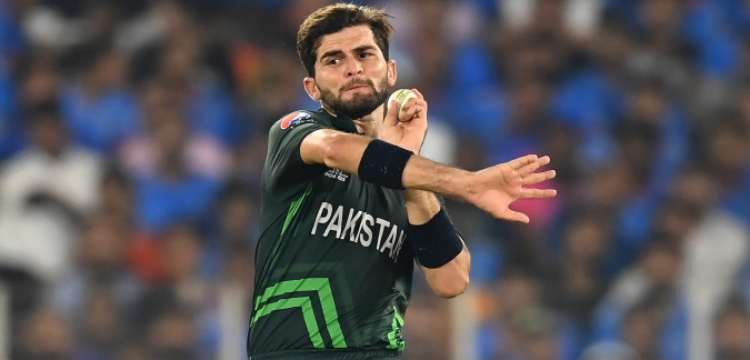Shaheen Afridi’s journey from a teenage sensation to a seasoned fast bowler has been nothing short of dramatic. His explosive debut in the 2021 T20 World Cup, where he demolished India’s top order, set the stage for a career that seemed destined for greatness. That year, Afridi’s performances were stellar, capturing 78 wickets in 36 international matches and earning him the ICC Player of the Year award for 2021.
In 2022, Afridi’s leadership of the Lahore Qalandars to their first-ever PSL title further cemented his status. However, the pinnacle of his early career was marred by a knee injury during the T20 World Cup final against England in 2022. This injury, sustained while taking a crucial catch, forced Afridi off the field and arguably cost Pakistan the match, highlighting how pivotal he had become to the team’s fortunes.
Fast forward to 2024, and Afridi has climbed back to the top of the T20I wicket-taking charts with 29 wickets in 17 games. Yet, there’s a sense among fans and analysts that something has changed. While his stats show improvement — a reduced economy rate from 8.72 in 2023 to 7.86 in 2024 and an increase in wickets per game — he doesn’t exude the same fearsome presence.
Also Read: Shaheen Afridi Nominated for ICC Player of the Month Award
A significant part of Afridi’s struggles can be attributed to predictability. As Muhammad Asif pointed out, batsmen seem to have figured out his once-lethal full, inswinging deliveries, especially in the powerplay. This predictability has been reflected in his powerplay economy rate, which has climbed significantly since his peak years.
Moreover, Afridi’s knee injury has likely had a lasting impact. Even though he has recovered, knee injuries can result in chronic issues and reduced mobility, critical for a fast bowler. Afridi’s pace has notably dropped by 5 to 7 km/h, diminishing the sharpness and intimidation factor that once defined his bowling.
Off-field distractions, particularly around team captaincy politics, have also played a role in affecting his focus and performance. Despite these challenges, Afridi’s trajectory since recovering from his injury has been positive. As he prepares to potentially take over as the leading pacer after Mohammad Amir’s expected retirement post-World Cup, Afridi has the chance to redefine his career.
At just 24 years old, Shaheen Afridi has already experienced the highs and lows of international cricket. His ability to adapt, learn, and overcome his current challenges will determine if he can return to the unassailable form that once made him the cricketing world’s darling. With his undeniable talent and the right support, there’s every reason to believe that Afridi can reach even greater heights in his career, becoming a guiding light for the next generation of Pakistani fast bowlers.











